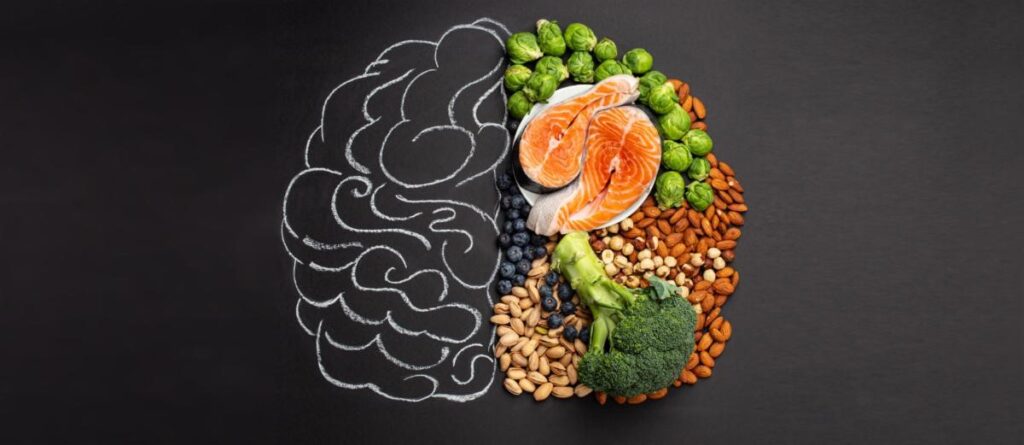Brief Introduction to Nutritional Psychiatry
By Nik Raju, MD
Lindner Center of Hope Staff Psychiatrist
Disclaimer: This was written for general informational purposes only and should not be viewed as medical advice. Please consult with your personal physician/care provider and/or registered dietitian for specific recommendations tailored to your individualized needs.
As the saying goes, food is medicine. While we often think of medicine as the medications prescribed by physicians and healthcare providers, the types of foods we eat on a day-to-day basis can also have an impact on our overall physical and mental well-being. Nutritional psychiatry is an emerging field within the medical specialty of psychiatry that essentially involves applying principles of nutrition to optimize brain health. Despite the tendency at times in medicine to separate the brain and the mind from the rest of the body, what is good for the body is often what is good for the brain. One of the main pioneers of nutritional psychiatry, Dr. Drew Ramsey is a psychiatrist who is a clinical professor at Columbia University as well as a farmer, and he provides his own explanation of nutritional psychiatry in this short video: https://drewramseymd.com/brain-food-nutrition/what-is-nutritional-psychiatry/. 
Nutritional psychiatry does not recommend one particular diet, though there is growing evidence that a plant-based, whole food-based diet can optimize mental and physical health, as long as some of the nutrients we usually obtain from meats and dairy products are received through proper supplementation. Given the high energy consumption and the amount of open land required to maintain cattle and livestock within our planet’s agricultural system, a whole food, plant-based diet can minimize environmental impacts while also improving our own health. This is a win-win for the planet and human health.
Dr. Ramsey and Dr. Uma Naidoo, another expert psychiatrist who is also a trained culinary chef and nutritionist based at Harvard Medical School, do not suggest that meat and seafood be eliminated completely from day-to-day food consumption but instead suggest we should be mindful of what protein sources we are eating. Regular consumption of red meats, such as beef and pork, as well as processed deli meats can produce generalized inflammation in the body, including in the brain, and inflammation in the cells and tissues that make up neural circuits in the brain is one of many hypothesized causes of depression. Unprocessed poultry meats and certain types of seafood are less likely to promote this inflammation in the brain. Shifting to foods with natural sugars, such as fresh fruit, and foods with high fiber content, including certain unprocessed grains and vegetables, can keep us full for longer periods of time, which can help us make more mindful food choices.
Nutritional psychiatry also emphasizes the gut-brain connection, as the brain cells (called neurons) comprising neural tracts in the brain communicate with cells in the gastrointestinal (GI) tract. The GI tract is actually the largest source of serotonin in the body, with approximately 90% of serotonin produced in the GI tract and 10% of serotonin produced in the brain. Serotonin is an essential (but not the only) neurochemical that regulates mood in the brain, and the SSRI antidepressants such as fluoxetine, sertraline, and escitalopram function partly by increasing the concentration of serotonin in neural circuits involved in depression. Some of the emerging research has found that maintaining healthy gut bacteria by consuming certain foods can also help reduce symptoms of depression and anxiety, and the neural networks communicating from the brain to the gut are considered to be one of the main mechanisms.
The concepts in nutritional psychiatry do not suggest foods can replace medications for mental health disorders. For conditions such as moderate to severe anxiety, depression, bipolar disorder, and schizophrenia, medication management is still usually required despite optimizing one’s diet. However, a medication regimen can at times be modified to require fewer psychiatric medications and maintained at lower doses by optimizing one’s diet and engaging in appropriate physical activity.
For further nutritional psychiatry concepts and practical information as to what foods to eat to optimize mental health, I often recommend Dr. Uma Naidoo’s This is Your Brain on Food and Dr. Drew Ramsey’s Eat to Beat Depression and Anxiety to my patients. Both books are written for the general public, and Dr. Ramsey’s book even includes recipes and meal prep ideas with optimizing one’s diet. I am also by no means an expert on nutrition, so I recommend following up with a registered dietitian to optimize your meals and food intake. Regardless, I do hope you come away from this article with general ideas and further suggestions on how to optimize what you eat to also ensure optimal brain health.
 Dr. Raju is a staff psychiatrist at Lindner Center of Hope and Assistant Professor of Clinical Psychiatry and Neuroscience at the University of Cincinnati College of Medicine. All views expressed in this article are his own.
Dr. Raju is a staff psychiatrist at Lindner Center of Hope and Assistant Professor of Clinical Psychiatry and Neuroscience at the University of Cincinnati College of Medicine. All views expressed in this article are his own.
